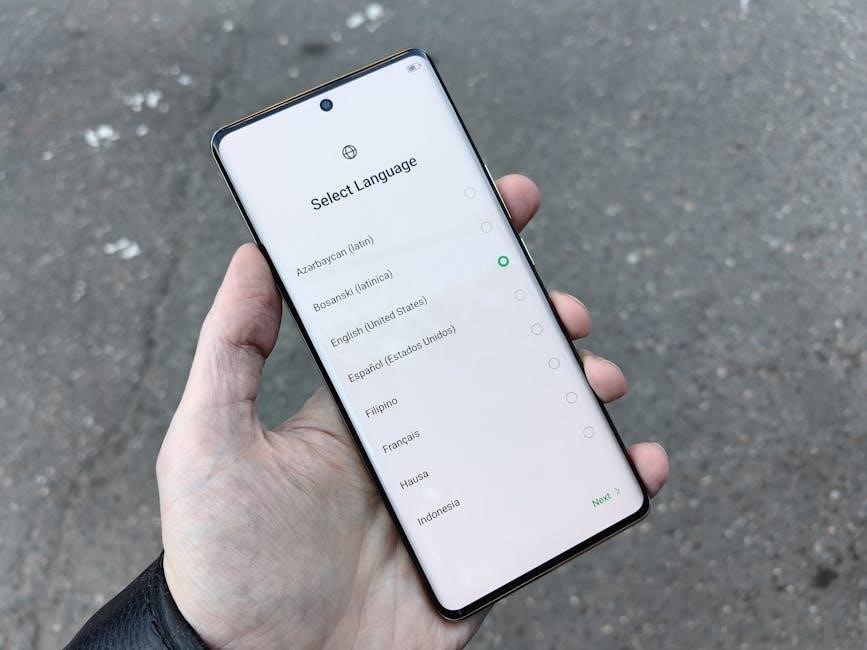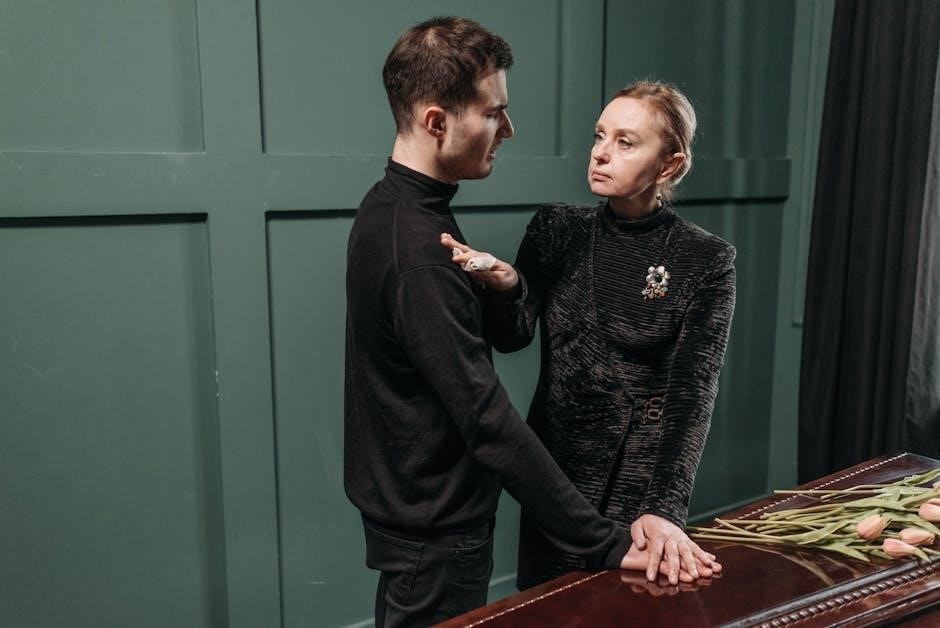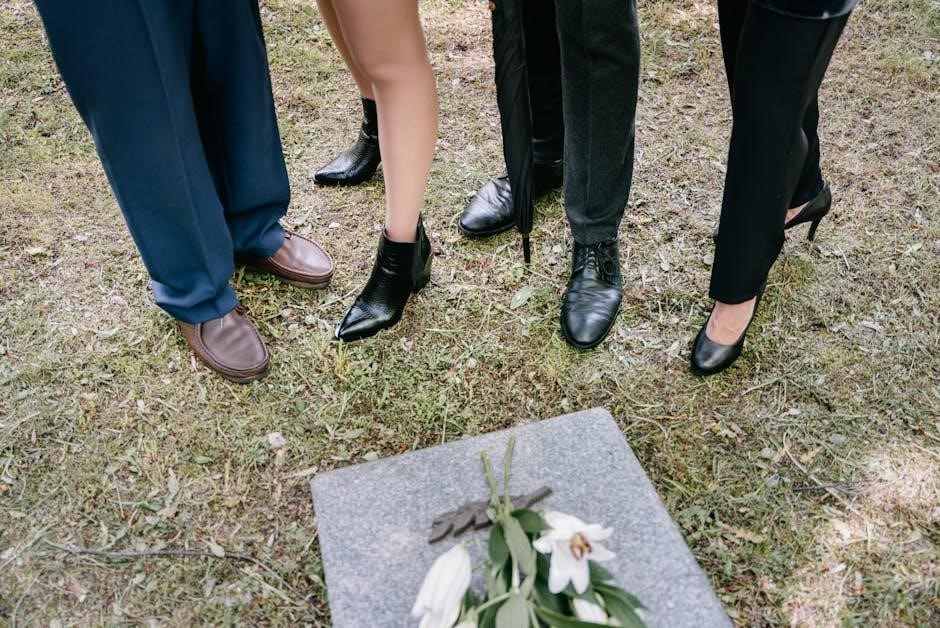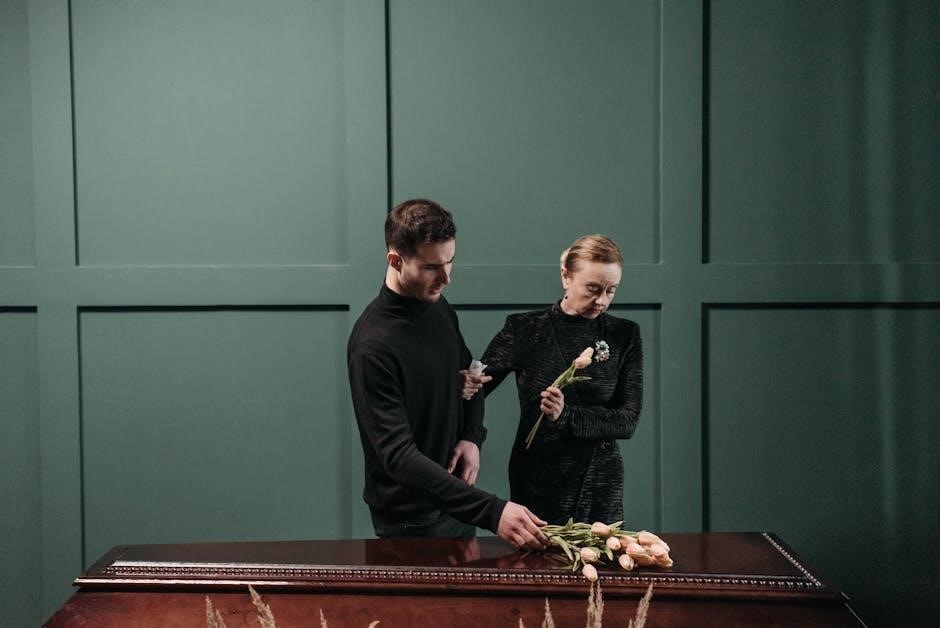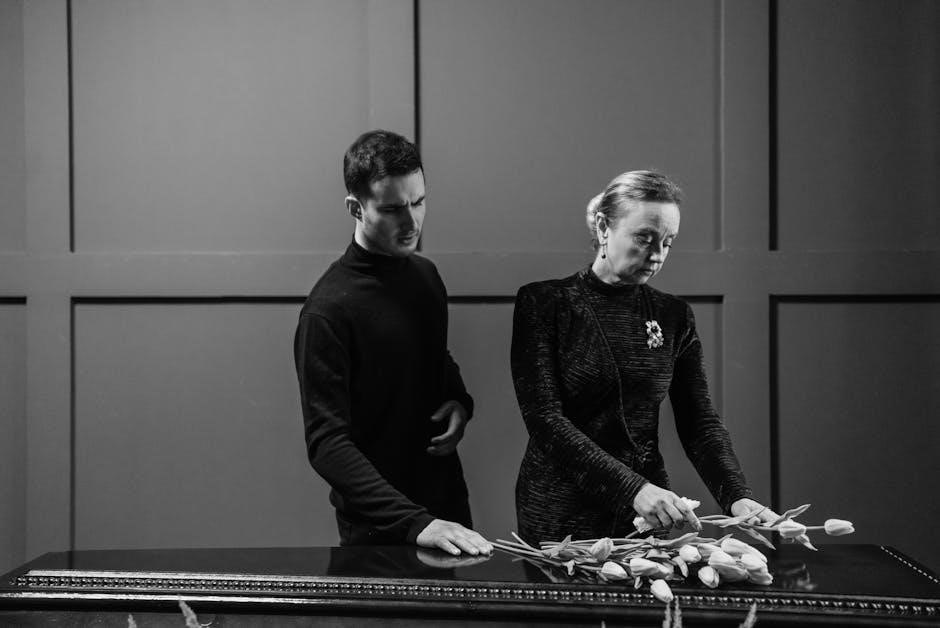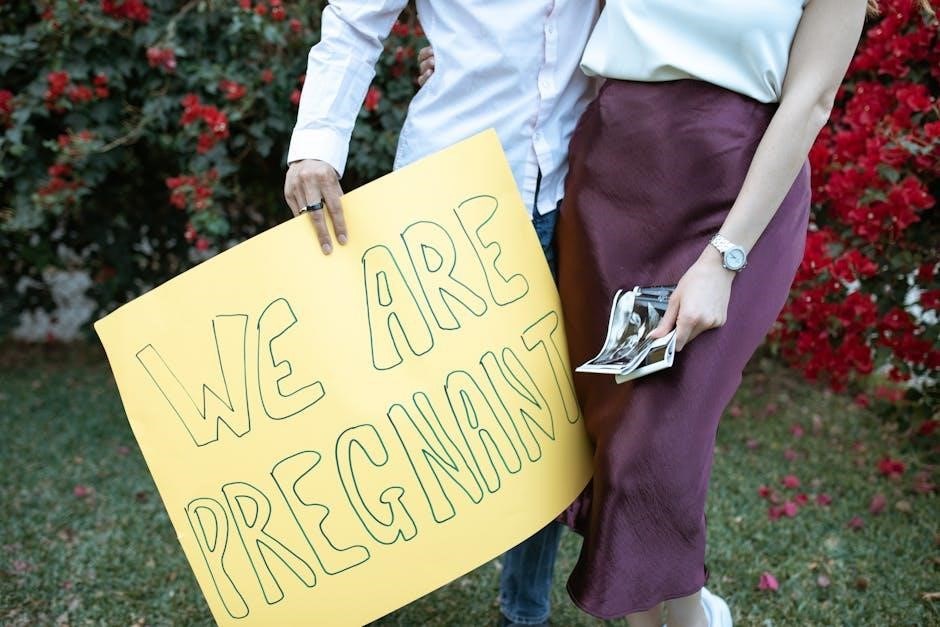The Turbo 350‚ a legendary three-speed automatic‚ gains enhanced control with a manual valve body upgrade. This modification offers precise shifting and improved performance.
A Turbo 350 transmission is renowned for its durability and widespread use since 1969‚ becoming a favorite for various automotive applications.
The valve body is the transmission’s hydraulic control center‚ directing fluid to operate clutches and bands for seamless gear changes.
Upgrading to a manual valve body provides drivers with the ability to initiate shifts manually‚ unlocking greater control and responsiveness for spirited driving.
What is a Turbo 350 Transmission?
The Turbo 350 is a widely celebrated three-speed automatic transmission‚ initially introduced in 1969 by General Motors. It quickly gained a reputation as one of the most robust and reliable automatic transmissions ever created‚ becoming a staple in countless vehicles for decades. Its design prioritized durability and performance‚ making it a favorite among enthusiasts and manufacturers alike.
This transmission served as a successor to the earlier Powerglide model‚ offering significant improvements in both efficiency and capability. The Turbo 350’s versatility allowed it to be implemented in a broad spectrum of applications‚ ranging from everyday passenger cars to high-performance muscle cars and even light-duty trucks. It’s a testament to its enduring quality that it remains popular for restorations and performance builds today.
The Role of the Valve Body
The valve body functions as the central nervous system of the Turbo 350 transmission‚ orchestrating all hydraulic operations. It’s a complex assembly containing a network of channels‚ valves‚ and passages that direct transmission fluid to the appropriate clutches and bands. This precise fluid control is what enables smooth and accurate gear shifts.
Essentially‚ the valve body interprets driver input – throttle position and vehicle speed – and translates it into hydraulic signals. These signals then activate the necessary components to engage the correct gear. A properly functioning valve body is crucial for optimal transmission performance‚ ensuring responsive shifting and overall reliability. Any issues within the valve body can lead to a variety of shifting problems.
Why Upgrade to a Manual Valve Body?
Upgrading to a manual valve body unlocks a new level of control and performance for your Turbo 350 transmission. Primarily‚ it allows for manual low-gear upshifting at any speed‚ a feature highly sought after by street rod and racing enthusiasts. This capability provides superior control during drag racing or demanding driving situations.
Furthermore‚ a manual valve body can correct or prevent common Turbo 350 issues like falling out of high gear‚ 3rd clutch failure‚ soft or late shifts‚ and even cross leaks. It offers positive shift performance and‚ in some cases‚ can even convert a TH350C model back to a standard TH350. Ultimately‚ it’s about maximizing the transmission’s potential.

Understanding Turbo 350 Valve Body Issues
Common Turbo 350 problems include falling out of high gear‚ 3rd clutch failure‚ soft shifts‚ and cross leaks; a manual valve body addresses these.
Common Problems: Falling Out of High Gear
A frustrating issue with the Turbo 350 transmission is unexpectedly dropping out of high gear‚ particularly when the transmission warms up. This symptom often points to wear or damage within the valve body itself‚ specifically affecting the components responsible for maintaining pressure to the forward clutch pack.
The problem stems from clearances increasing as the transmission heats up‚ allowing hydraulic pressure to bleed off. A manual valve body rebuild kit‚ or a fully rebuilt valve body‚ directly addresses this by restoring proper hydraulic function and tightening those critical clearances.
TransGo kits are specifically designed to correct and prevent this issue‚ ensuring consistent engagement of the high gear‚ even under demanding conditions. Replacing worn components and restoring optimal pressure is key to a reliable high-gear hold.
Common Problems: 3rd Clutch Failure
A frequent failure point in the Turbo 350 transmission is the third clutch pack‚ often resulting from insufficient hydraulic pressure or improper shift timing. This leads to slipping in third gear‚ eventual clutch damage‚ and costly repairs. The valve body plays a crucial role in delivering the correct pressure and timing for smooth‚ reliable third-gear engagement.
Valve body wear can restrict fluid flow to the third clutch‚ causing overheating and premature failure. A rebuild kit‚ like those offered by TransGo‚ addresses this by replacing worn valves and springs‚ restoring optimal hydraulic control.
Upgrading to a manual valve body or utilizing a valve body repair kit proactively prevents this issue by ensuring consistent and adequate pressure to the third clutch‚ extending its lifespan significantly.
Common Problems: Soft or Late Shifts
Experiencing sluggish or delayed gear changes in a Turbo 350 often points to issues within the valve body. Worn or sticking valves can impede the swift and precise flow of hydraulic fluid necessary for firm‚ timely shifts. This results in a less responsive driving experience and diminished performance.
TransGo shift kits and valve body repair kits directly address this by replacing worn components and modifying fluid passages to enhance responsiveness. These kits restore the valve body’s ability to deliver optimal hydraulic pressure at the correct moments.
A manual valve body offers a solution by allowing for more direct control over shift points‚ eliminating the ambiguity of automatic operation and ensuring consistently crisp shifts.
Common Problems: Cross Leaks
Cross leaks within the Turbo 350 transmission occur when hydraulic fluid unintentionally flows between different circuits‚ leading to a cascade of performance issues. This often manifests as erratic shifting‚ loss of drive‚ or complete transmission failure. Worn seals‚ damaged valve body components‚ or internal cracks are common culprits.
TransGo kits specifically target cross leak prevention and correction‚ including replacement seals and modified valve body passages to ensure proper fluid isolation. A rebuilt valve body‚ as offered by ATD‚ undergoes thorough inspection and replacement of potential leak points.
Upgrading to a manual valve body can also mitigate cross leak risks by providing a fresh‚ meticulously assembled hydraulic system.

Types of Turbo 350 Manual Valve Bodies
Various options exist‚ from standard manual valve bodies to TransGo shift kits‚ Superior K350-HP performance models‚ and Hipsters Billet transbrake valve bodies for diverse needs.
Standard Manual Valve Bodies
Standard manual valve bodies represent a foundational upgrade for the Turbo 350 transmission‚ offering a direct replacement with enhanced control. These kits typically focus on correcting common issues like falling out of high gear‚ 3rd clutch failure‚ soft or late shifts‚ and cross leaks.
Installation generally doesn’t require complete transmission removal‚ simplifying the process for many enthusiasts. They function effectively with both lock-up and non-lock-up transmissions‚ broadening their applicability. These valve bodies are designed to restore original functionality while providing the benefits of manual control over gear selection‚ improving the driving experience and transmission reliability.
They are a cost-effective solution for those seeking improved performance without extensive modifications‚ making them a popular choice for street applications.
TransGo Shift Kits & Valve Body Repair Kits
TransGo offers comprehensive solutions for Turbo 350 transmissions‚ including both shift kits and complete valve body repair kits like the popular SK 350 and 350-12 reprogramming kits. These kits address common problems such as falling out of high gear‚ 3rd clutch failure‚ and soft shifts.
TransGo kits are designed to correct‚ prevent‚ and reduce these issues‚ often without requiring full transmission removal for installation. They are compatible with 250/250C and 350/350C models‚ and function with both lock-up and non-lock-up setups.
Detailed instructions and decals are included‚ ensuring a smooth installation process and optimal performance gains.
Superior K350-HP Performance Valve Bodies
Superior’s K350-HP valve body is a high-performance upgrade specifically tailored for street rods and racing applications. This kit transcends standard repairs‚ offering manual low-gear upshifting capabilities at any speed‚ alongside the option for automatic operation.
It’s engineered to eliminate erratic shifting in passing gear‚ providing super positive and consistent performance. A unique benefit of the K350-HP is its ability to convert a TH350C transmission into a standard TH350 configuration.
Thorough instructions accompany the kit‚ guiding users through the process once the valve body is removed‚ ensuring a successful and optimized rebuild.
Hipsters Billet Transbrake Valve Bodies
Hipsters Billet Turbo 350 Transbrake Valve Bodies represent a premium option for those seeking cutting-edge performance and individuality. These valve bodies are meticulously crafted from billet aluminum‚ ensuring exceptional strength and durability for demanding applications.
Each kit includes comprehensive instructions and decals‚ facilitating a smooth installation process. Hipsters encourages a unique approach‚ embodying the spirit of originality with their branding – “Be original‚ be a Hipster. BeHipOrBeLate.”
Exclusively available through ATD and qualified wholesale dealers‚ Hipsters Billet valve bodies offer a distinctive blend of quality‚ performance‚ and style for serious enthusiasts.

Installation and Rebuild Considerations
Proper installation often doesn’t require full transmission removal‚ simplifying the process. Thorough disassembly‚ inspection‚ and generous use of assembly lube are crucial for success.
Transmission Removal: Is it Necessary?
Fortunately‚ installing a Turbo 350 manual valve body‚ particularly a TransGo kit‚ frequently does not necessitate complete transmission removal from the vehicle. This is a significant advantage‚ saving considerable time and labor during the upgrade process. However‚ accessibility can vary depending on the vehicle’s make and model‚ and the installer’s experience.
While removal isn’t always mandatory‚ it’s often recommended for a more thorough inspection of the transmission’s overall condition. This allows for the identification and addressing of any potential issues beyond the valve body itself‚ ensuring a reliable and long-lasting repair. If the transmission has experienced significant wear or issues‚ removal provides better access for a complete overhaul.
Disassembly and Inspection
Prior to installing a new or rebuilt Turbo 350 manual valve body‚ meticulous disassembly and inspection of the original valve body are crucial. This process allows for identifying the root cause of any existing transmission issues‚ such as worn valves‚ sticking spools‚ or damaged seals. Careful examination reveals patterns of wear‚ indicating potential problems within the transmission itself.
Thoroughly clean all components with solvent‚ paying close attention to passages and orifices. Inspect for debris‚ cracks‚ or corrosion. Document the condition of each part‚ noting any damage or wear. This detailed inspection informs the rebuild process and ensures proper function of the upgraded valve body‚ maximizing performance and reliability.
Using Assembly Lube (LubeGard Blue)
Proper lubrication during Turbo 350 valve body assembly is paramount for long-term reliability and smooth operation. LubeGard Blue assembly lube is highly recommended by professionals for its exceptional anti-wear properties and ability to protect critical components during initial startup. Apply a generous coating to all moving parts‚ including valves‚ spools‚ and seals.
This specialized lubricant ensures adequate film strength‚ preventing metal-to-metal contact and minimizing wear. It also aids in proper seating of seals‚ preventing leaks. LubeGard Blue’s formulation is compatible with all transmission components‚ providing comprehensive protection and contributing to a successful rebuild.
Following Installation Instructions
Precise adherence to the included installation instructions is crucial when installing a Turbo 350 manual valve body. Each kit‚ whether from TransGo‚ Superior‚ or Hipsters‚ provides specific guidance tailored to its design. Thoroughly read and understand all steps before beginning the installation process. Pay close attention to torque specifications for all fasteners‚ ensuring proper clamping force without damaging components.
Detailed instructions often include diagrams and illustrations‚ clarifying complex procedures. Utilizing these resources minimizes errors and guarantees a successful outcome. Remember‚ a properly installed valve body is essential for optimal transmission performance and longevity.

Features and Benefits of Upgraded Valve Bodies
Upgraded valve bodies unlock manual low-gear upshifting‚ enhance passing gear performance‚ and even convert TH350C models to standard TH350 configurations for improved control.
Manual Low-Gear Upshifting
A key benefit of certain upgraded Turbo 350 manual valve bodies‚ particularly the high-performance kits like the Superior K350-HP‚ is the capability for manual low-gear upshifting. This feature grants the driver complete command over gear selection at any speed‚ offering a level of control unavailable with a standard automatic setup.

This is especially valuable for drivers seeking maximum performance‚ allowing them to hold lower gears for extended periods during aggressive driving or track applications. It provides enhanced engine braking and precise gear selection for optimal acceleration and control. The ability to manually dictate shifts transforms the driving experience‚ offering a more engaging and responsive feel.
Essentially‚ it allows the driver to override the automatic shift points‚ tailoring the gear selection to the specific driving conditions and preferences.
Improved Passing Gear Performance
Upgraded Turbo 350 manual valve bodies significantly enhance passing gear performance by eliminating erratic shift behavior. The Superior K350-HP kit specifically addresses and resolves issues with inconsistent or delayed downshifts when attempting to overtake another vehicle.
This improvement stems from the refined hydraulic control within the valve body‚ ensuring a firm and predictable downshift into the optimal gear for accelerating past traffic. Drivers experience quicker response times and more confident passing maneuvers‚ enhancing both safety and driving enjoyment.

The result is a more decisive and powerful passing experience‚ providing the necessary acceleration to safely and efficiently overtake other vehicles on the road.
Converting TH350C to TH350
Certain Turbo 350 manual valve body kits‚ notably the Superior K350-HP‚ offer the capability to convert a TH350C transmission into a standard TH350 configuration. This conversion is particularly valuable for those seeking compatibility with components designed specifically for the original TH350 model.
The TH350C variant features a slightly different hydraulic profile‚ and this kit effectively modifies the valve body to replicate the characteristics of the earlier TH350. This allows for interchangeability of parts and simplifies future maintenance or upgrades.
This feature provides flexibility and expands the options available to builders and enthusiasts working with these transmissions.
Positive Shift Performance
Upgraded Turbo 350 manual valve bodies consistently deliver remarkably positive shift performance‚ a key benefit sought by enthusiasts and racers alike. These kits‚ like the Superior K350-HP‚ are engineered to eliminate any ambiguity or hesitation during gear changes‚ providing a firm and decisive engagement.
This enhanced responsiveness translates to quicker acceleration and a more connected driving experience. The precise hydraulic control offered by these valve bodies ensures that each shift is executed with authority and predictability.
Drivers will experience a noticeable improvement in overall vehicle control and performance‚ especially during demanding driving situations.

Specific Kits and Components
TransGo offers the TH-350 Reprogramming Kit (350-12) and the SK 350 Shift Kit‚ while Superior provides the K350-HP for high-performance builds.
TransGo TH-350 Reprogramming Kit (350-12)
The TransGo TH-350 Reprogramming Kit (350-12) is a comprehensive solution designed for GM TH350 and TH350C automatic transmissions‚ spanning models from 1969 onwards. This kit effectively addresses and prevents common issues like falling out of high gear when hot‚ frustrating third clutch failures‚ and experiencing soft or late shifts.
Furthermore‚ it mitigates the risk of cross leaks within the transmission. A significant advantage of this kit is that it doesn’t necessitate complete transmission removal for proper installation‚ saving valuable time and labor. It’s compatible with both lock-up and non-lock-up transmission configurations‚ broadening its applicability.
Detailed technical instructions are included to guide installers through the process‚ ensuring a successful outcome. This kit represents a cost-effective and reliable method for restoring and enhancing the performance of your Turbo 350 transmission.
TransGo SK 350 Shift Kit
The TransGo SK 350 Shift Kit is engineered to fit all 250/250C and 350/350C models manufactured from 1969 onwards‚ offering broad compatibility for classic and modern builds. This kit is a robust solution for correcting and preventing common Turbo 350 transmission problems‚ including issues with falling out of high gear when the transmission heats up.
It also addresses third clutch failures‚ soft or delayed shifts‚ and the potential for internal cross leaks. Designed for both lock-up and non-lock-up applications‚ the SK 350 provides versatile performance enhancement.
For those seeking even greater control‚ a high-performance version (K350-HP) is available‚ ideal for street rods and racing applications.
Included Instructions and Decals
Hipsters Billet Turbo 350 Transbrake Valve Bodies come complete with detailed instructions and accompanying decals‚ ensuring a smooth and informed installation process. These instructions are designed to guide users through every step‚ from disassembly to final adjustments‚ maximizing performance gains.
TransGo kits also provide thorough technical instructions‚ detailing the necessary procedures once the valve body is removed from the transmission.
These resources empower both experienced mechanics and DIY enthusiasts to confidently tackle the upgrade. The inclusion of decals adds a touch of branding and personalization‚ reflecting the quality and attention to detail inherent in these performance components.

Compatibility and Applications
These valve bodies fit 1969 and later 250/250C and 350/350C models‚ working with both lock-up and non-lock-up transmissions for street or racing.
Lock-Up vs. Non-Lock-Up Transmissions
Understanding the distinction between lock-up and non-lock-up Turbo 350 transmissions is crucial when selecting a manual valve body. Lock-up converters‚ typically found in later model TH350s‚ enhance fuel efficiency by mechanically connecting the engine to the transmission at cruising speeds.
However‚ many early TH350s utilized non-lock-up converters. Fortunately‚ the valve body kits discussed are generally compatible with both types‚ offering versatility for a wide range of builds.
When choosing a kit‚ confirm its stated compatibility to ensure proper function with your specific transmission configuration.
Proper fitment guarantees optimal performance and avoids potential issues during installation and operation‚ maximizing the benefits of your upgrade.
Street Rod and Racing Applications
Turbo 350 manual valve bodies are exceptionally popular in both street rod and racing communities due to their ability to enhance performance and control. For street rods‚ they offer a more engaging driving experience with manual shifting capabilities‚ adding a unique element of fun.
Racing applications demand precise and consistent shifts‚ and upgraded valve bodies‚ like the Superior K350-HP‚ deliver exactly that. These kits often allow manual low-gear upshifting‚ crucial for drag racing.
The positive shift performance provided by these upgrades translates to quicker ETs and improved consistency on the track.
Whether building a show car or a competition vehicle‚ a manual valve body is a worthwhile investment.
Model Years: 1969 and Later
Turbo 350 manual valve body kits demonstrate broad compatibility‚ fitting a wide range of General Motors vehicles manufactured from 1969 onwards. This extensive coverage makes upgrading a classic or later-model GM car remarkably straightforward.
The kits are designed to work seamlessly with both 250/250C and 350/350C transmission models‚ ensuring a proper fit and function regardless of the specific TH350 variant.
Regardless of whether your vehicle is a muscle car from the golden age or a more modern classic‚ a manual valve body can significantly improve its performance.
This wide compatibility makes it a versatile upgrade for enthusiasts.
Compatibility with 250/250C and 350/350C Models
Turbo 350 manual valve body upgrade kits are engineered for universal fitment within the TH350 family‚ specifically addressing both the 250/250C and 350/350C transmission designations.
This broad compatibility eliminates the guesswork often associated with transmission upgrades‚ assuring a direct replacement and simplified installation process.
Whether your classic GM vehicle is equipped with a 250 or 350 cubic inch engine‚ these kits provide a performance enhancement without requiring extensive modifications.
The kits are designed to function optimally with both ‘C’ (clutchmate) and non-‘C’ variants‚ offering a versatile solution for a wide range of applications.

Where to Purchase Turbo 350 Valve Bodies
ATD (and qualified dealers) offer direct access‚ alongside numerous online retailers and distributor centers‚ providing convenient options for acquiring these upgrades.
ATD (and Qualified Dealers)
ATD stands as a primary source for Hipsters Billet Turbo 350 Transbrake Valve Bodies‚ ensuring authenticity and direct access to their specialized products. These valve bodies‚ complete with instructions and decals‚ embody a unique approach to transmission performance.
Beyond direct sales‚ ATD maintains a network of qualified wholesale dealers‚ expanding the availability of their products to a broader customer base. This network guarantees that customers receive genuine ATD components and benefit from expert advice.
For those seeking the distinctive “BeHipOrBeLate” experience‚ purchasing through ATD or its authorized dealers is the recommended path. This ensures access to the latest innovations and support for your Turbo 350 transmission build.
Online Retailers
Numerous online retailers offer Turbo 350 valve bodies and related shift kits‚ providing convenient access for builders and enthusiasts. These platforms often feature a wide selection of brands‚ including TransGo and Superior K350-HP‚ catering to diverse performance needs.
When purchasing online‚ careful consideration should be given to the retailer’s reputation and return policies. Ensuring a reliable source is crucial for receiving genuine parts and resolving potential issues efficiently.
Many retailers stock TransGo’s TH-350 Reprogramming Kit (350-12) and SK 350 Shift Kits‚ offering solutions for correcting common problems like falling out of high gear or soft shifts. Comparing prices and reading customer reviews is highly recommended.
Distributor Centers
ATD (Automotive Transmission Distributors) serves as a primary distributor for Turbo 350 valve bodies and related components‚ alongside a network of qualified wholesale dealers. They offer direct access to a comprehensive inventory‚ ensuring availability for rebuilders and performance shops.
Distributor centers often provide technical support and expertise‚ assisting customers in selecting the appropriate valve body for their specific application – whether it’s a street rod‚ racing build‚ or general restoration.
Parts ship daily from these distribution hubs‚ facilitating quick turnaround times for orders. Accessing these centers ensures genuine TransGo and Superior K350-HP products‚ backed by established industry relationships.














